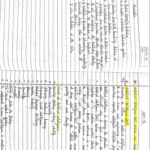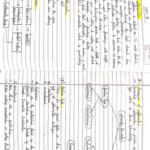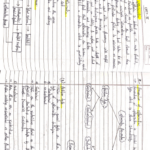1) Discuss about the ethics of computer of pharmaceutical research? (5 marks)
Ethics is a set of moral principles that govern the behavior of a group or individual.
likewise, computer ethics is set of moral principles that regulate the use of computers.
Computer ethics are just knowing the difference between ethical and unethical. For
example,while it is easy to duplicate copyrighted electronic (or digital)content,
computer ethics would suggest that it is wrong to do so without the author’s approval.
to examine the ethics of computing in pharmaceutical research, philosophers have
shown most interest with regard to computer ethics, namely, the issues of privacy,
liability,ownership,and power.
Ethical issue: 1. Privacy
2. Liability
3. Ownership
4. Power
1. Privacy:
The right to privacy is thought of as the right of individuals to determine the nature,
scope, and manner of information revealed about themselves.
Pharmaceutical researchers need not and ought not contribute to the supply of
information available about an individual.Furthermore, given the advent and techniques of
data mining, researchers should take precautions and build prohibitors into research.
Example for privacy issue is a right to privacy that protects the sick individual’ medical
record from public release and thats the issue of privacy.
2. Liability:
Among the topics related to liability and computer use in general are legal liability, the
duty of honesty, the nature of contracts, misrepresentation, express and implied warranties,
and negligence.
In the case of software written specifically for a certain research purpose, the liability
may not fall exclusively on the software provider.In those situations, it is the duty of the
researcher to be very clear in knowing and stating his or her purposes to the programmer. In
addition to the increased precision in the communication between the researcher and the
programmer, there will be an increase in the accuracy of the data involved in the research. If
the right to privacy demands protection,then there may need to be strict limits on who has
access to programs, especially programs involving research. So, not only is there a need for
1
www.DuloMix.com
technological “blockers” to protect against intrusions into programs, policy and procedure
must strictly limit access to programs.
3. Ownership:
Various devices have been used to encapsulate and resolve the question of ownership of
software. And, of course, the question of ownership is circumscribed by the right to
property. Devices such as copyrights, patents, encryption, trade secrets, and oaths of
confidentiality and standard virtues like trustworthiness and loyalty have been tried to
protect ownership and the right to property.
In short, not only is there a need to communicate between the researcher and the
programmer for the sake of accuracy and liability, there is a need to resolve the issue of
property rights, too.
4. Power:
Power as a crucial matter in the development of computer ethics.“Power” may broadly
be construed as any capacity.
This power will impact human life especially in the area of politics, socialisation and
law. Therefor limits must be placed on technology and its devolopment. This debate
surrounding computer that they effect socity demands the attention to be paid to this area.
• Although these are the four common issues in computer ethics: privacy, liability,
ownership, and power one can consider three ethical frameworks in examining
ethical conflicts: rights (of individuals), justice (fairness), and consequentialism
(utility).
• Therefore researchers who use computer technology in pharmaceutical research
must be aware of the issues of computer ethics in addition to other issues of
conducting pharmaceutical research.
2
www.DuloMix.com
3
www.DuloMix.com










